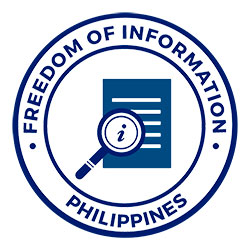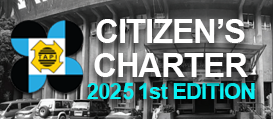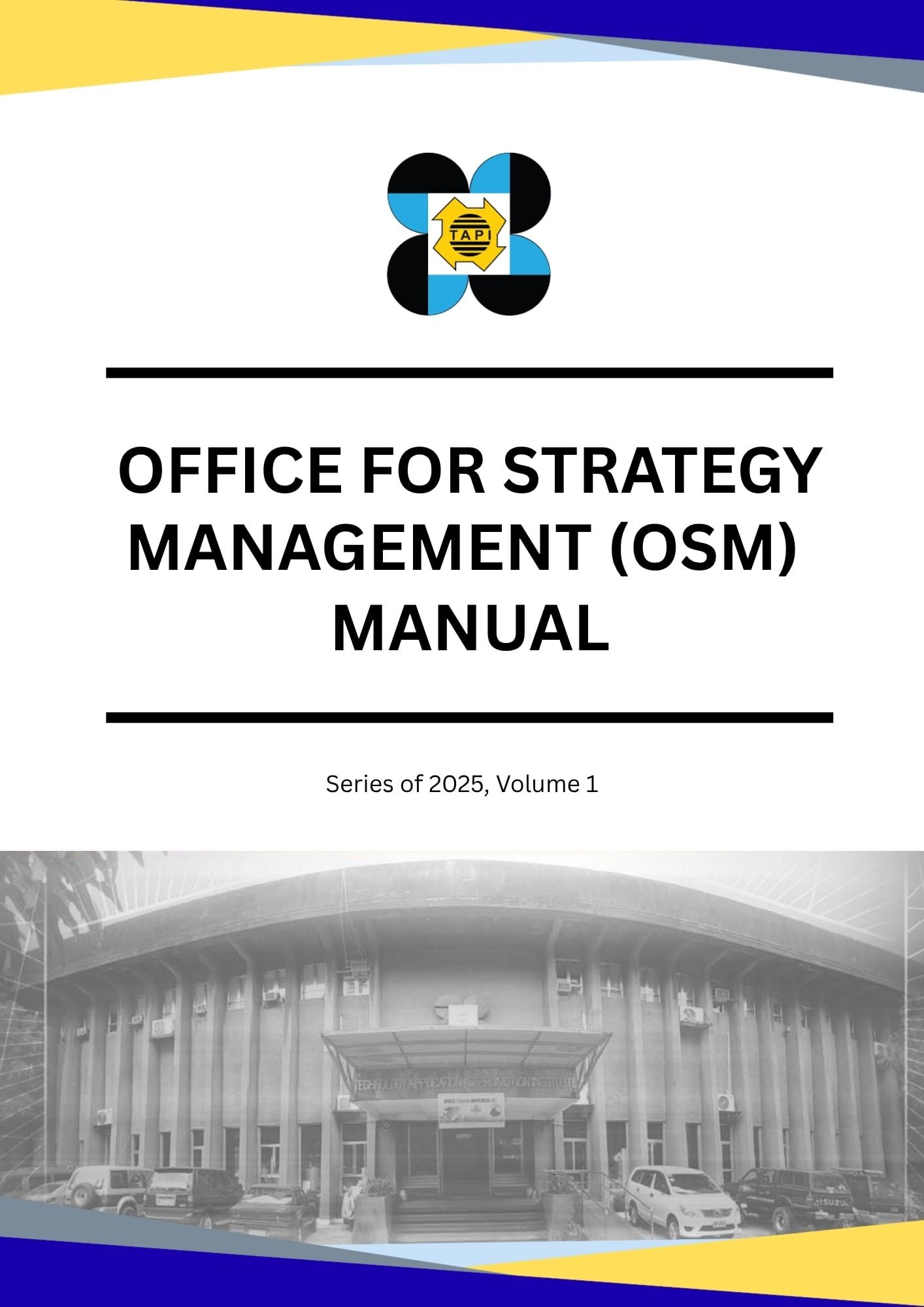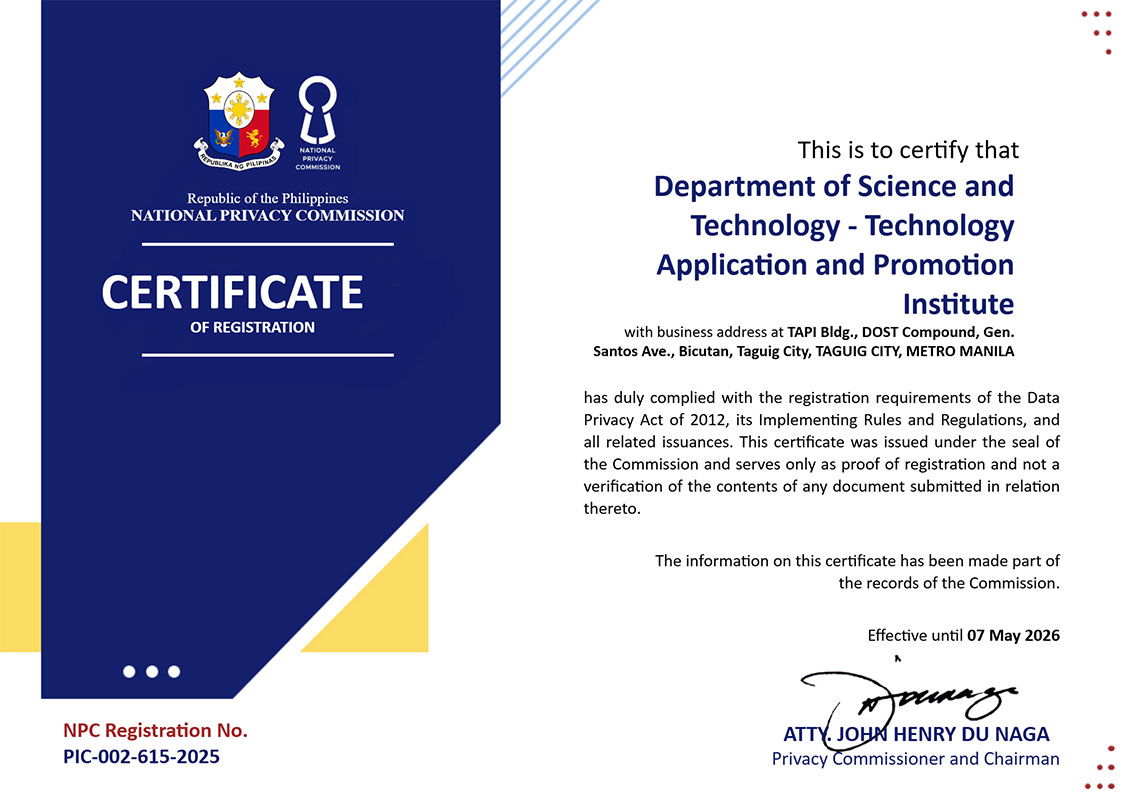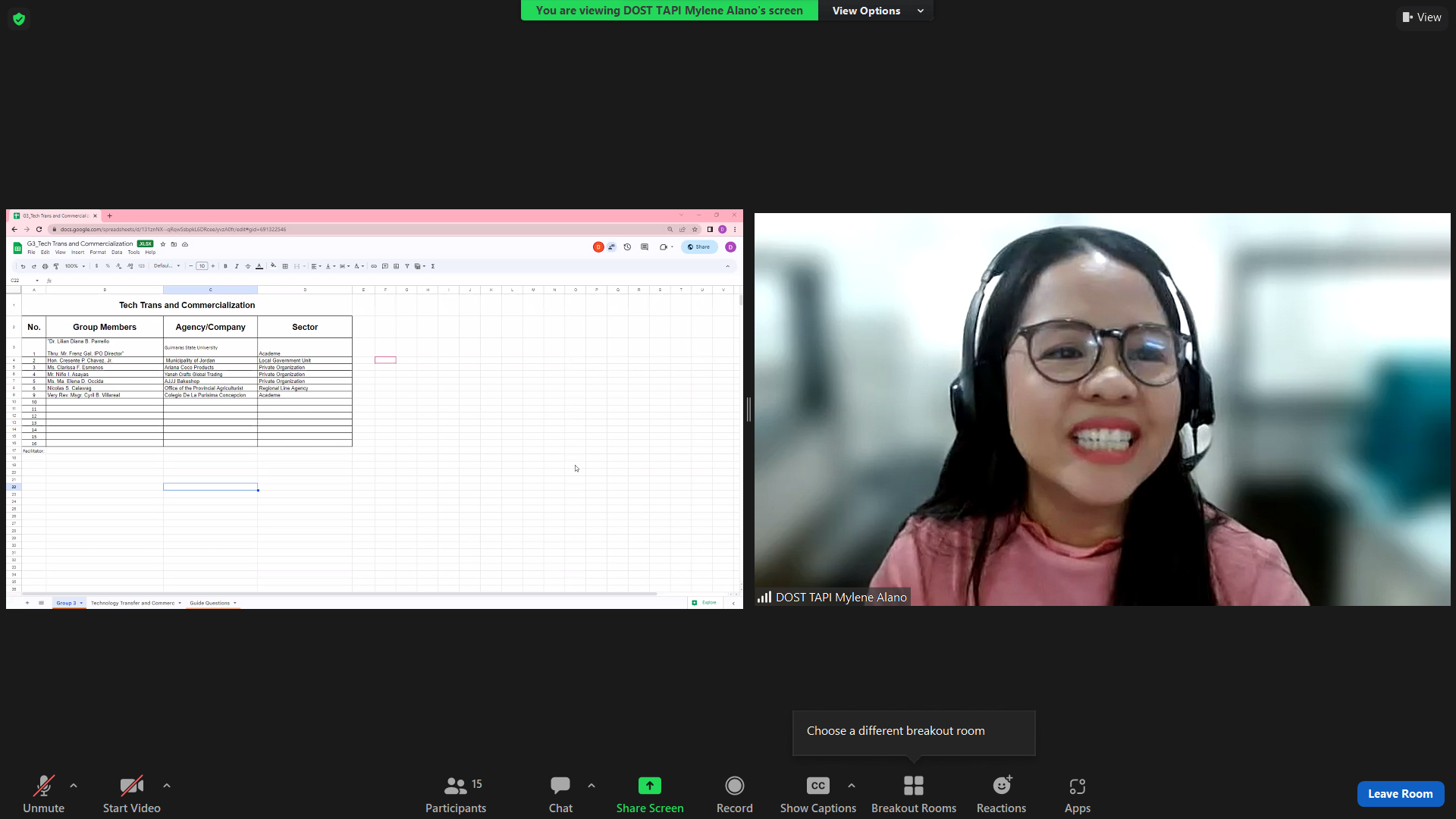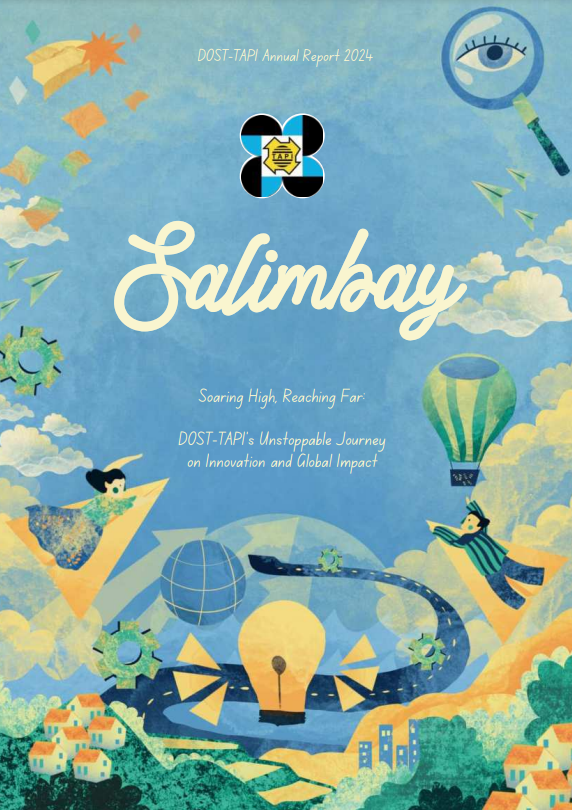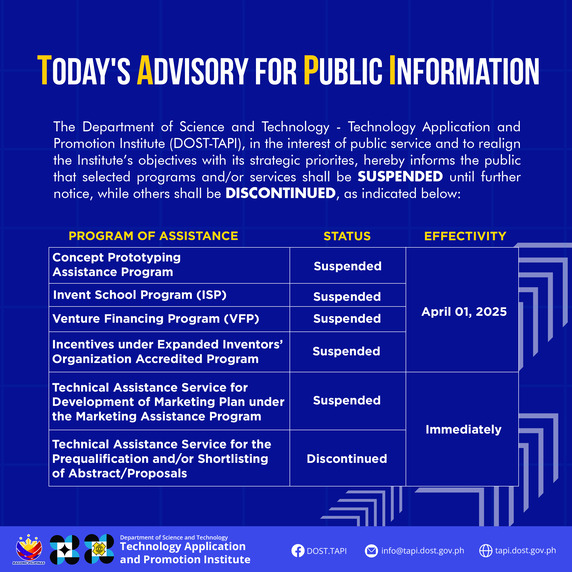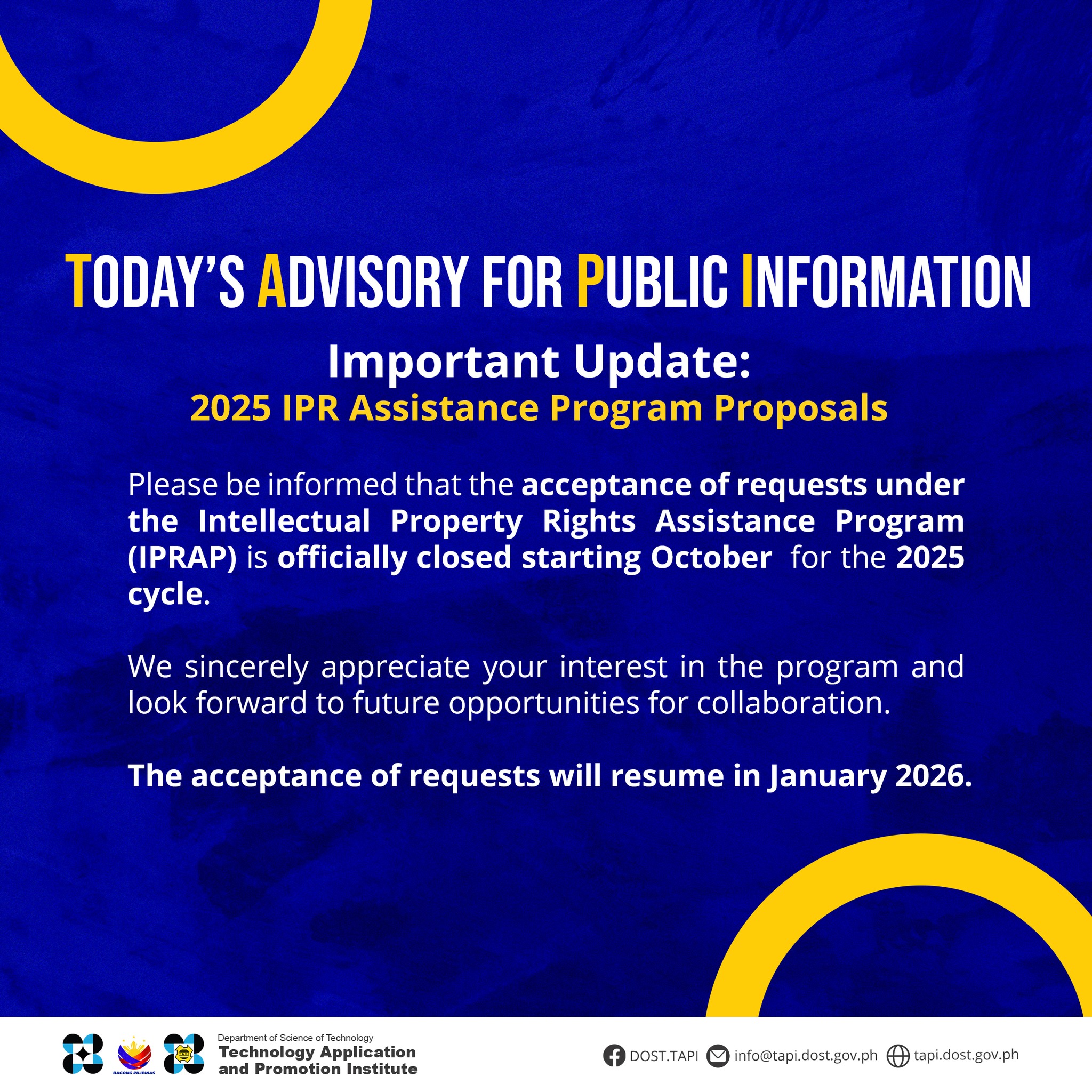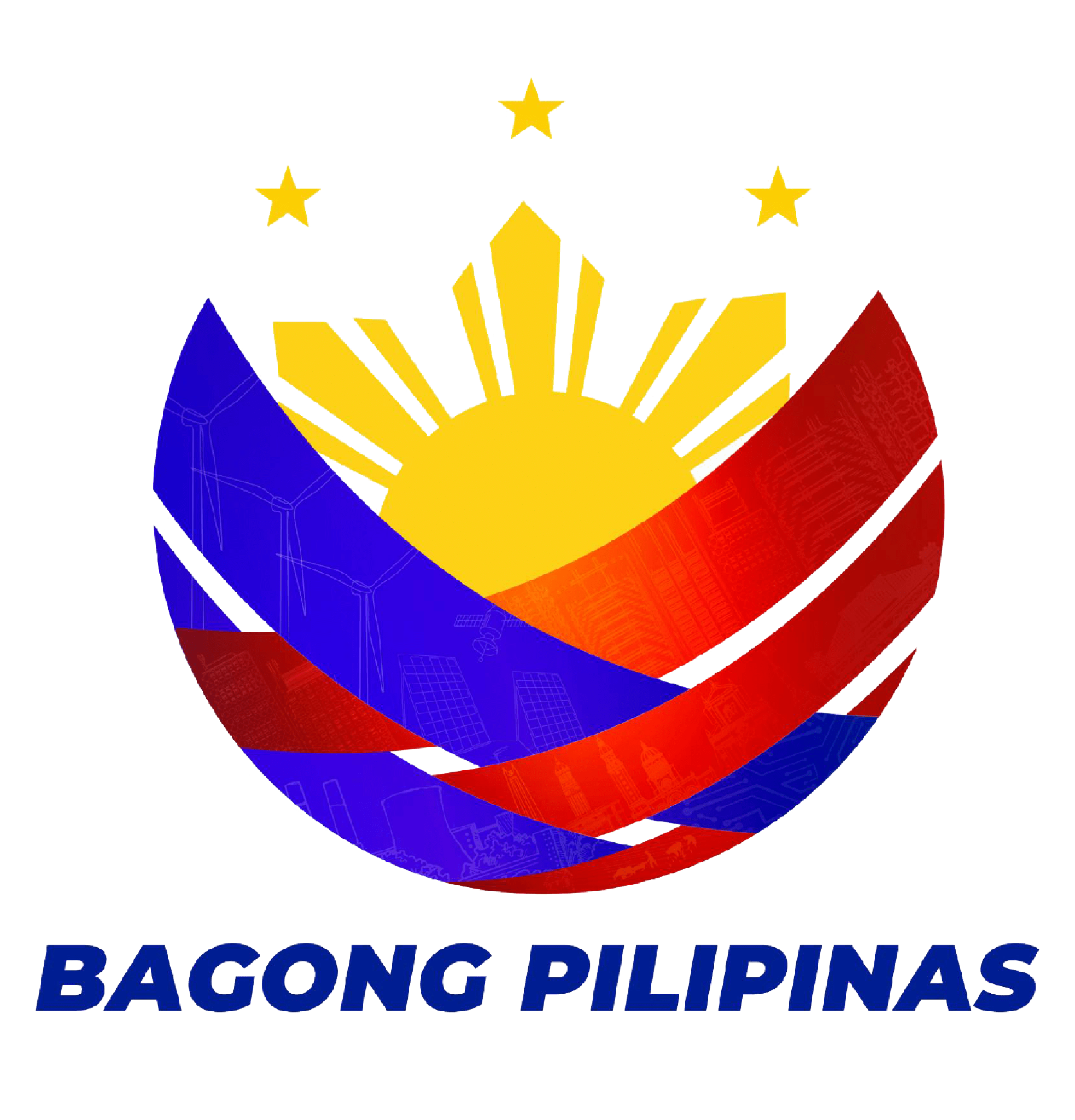By Sharah Ibrahim
The Department of Science and Technology- Technology Application and Promotion Institute (DOST-TAPI) concluded the final leg of its Stakeholder's Forum last July 14, via Zoom for Region VI.
The forum, focused on tech transfer and commercialization in Region VI, successfully effectively garnered valuable inputs from various stakeholder groups such as academicians, technology generators, local government units (LGUs), and representatives from the private sector.
Director Arecio A. Casing, Jr. CESO IV, RDC VI Vice Chairperson, and NEDA VIA Regional Director, shared an overview of the country's technology transfer and commercialization landscape.
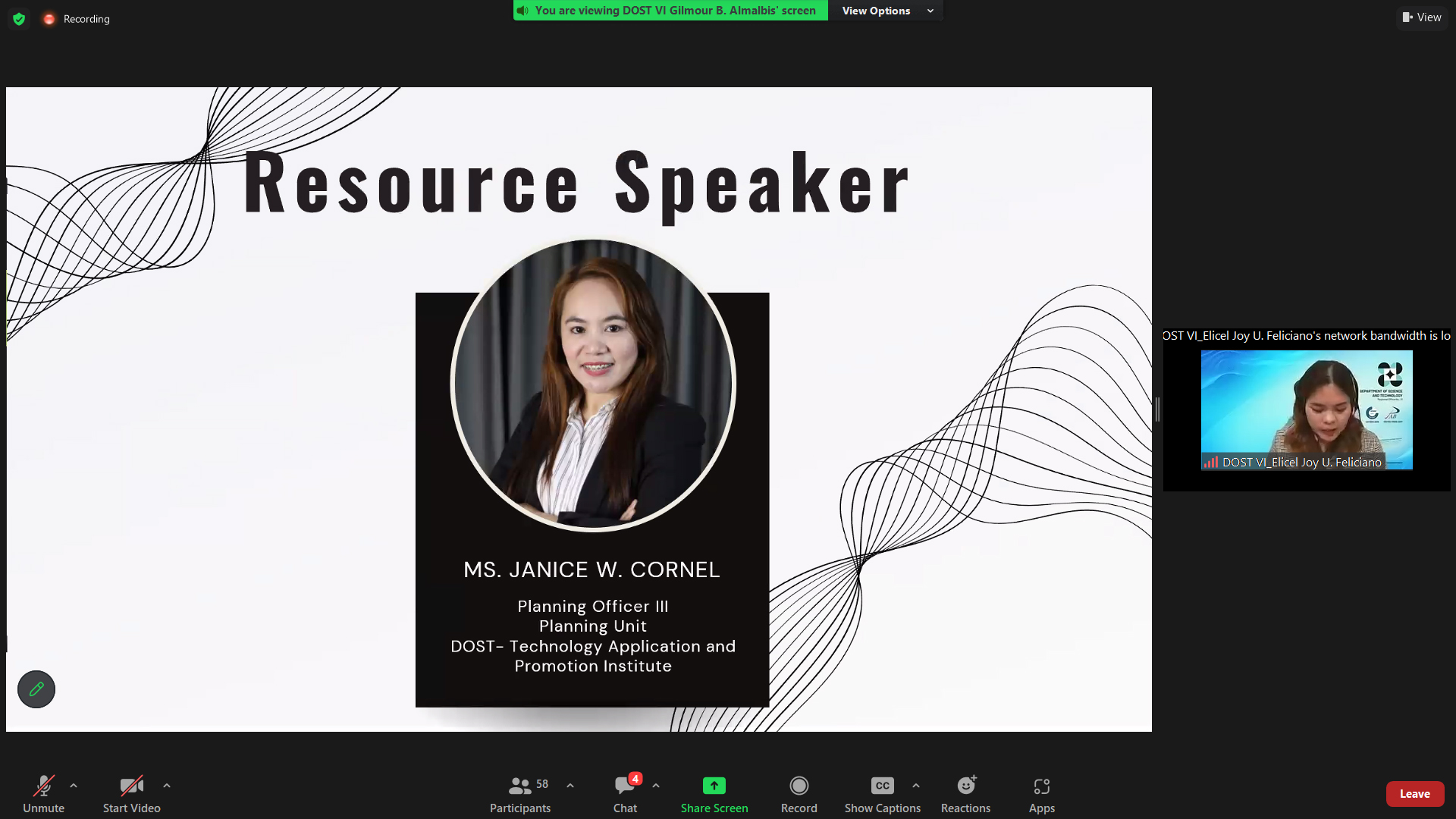
Just as in the previous forums, Ms. Janice W. Cornel, Planning Officer III of DOST-TAPI, presented the agency's initiatives on technology innovation, development, transfer, and commercialization.
The forum emphasized four key areas: Ideation and Protection, Technology Development, Technology Transfer and Commercialization, and Promotion and Utilization. Each area yielded critical issues, concerns, and suggested programs for future consideration.
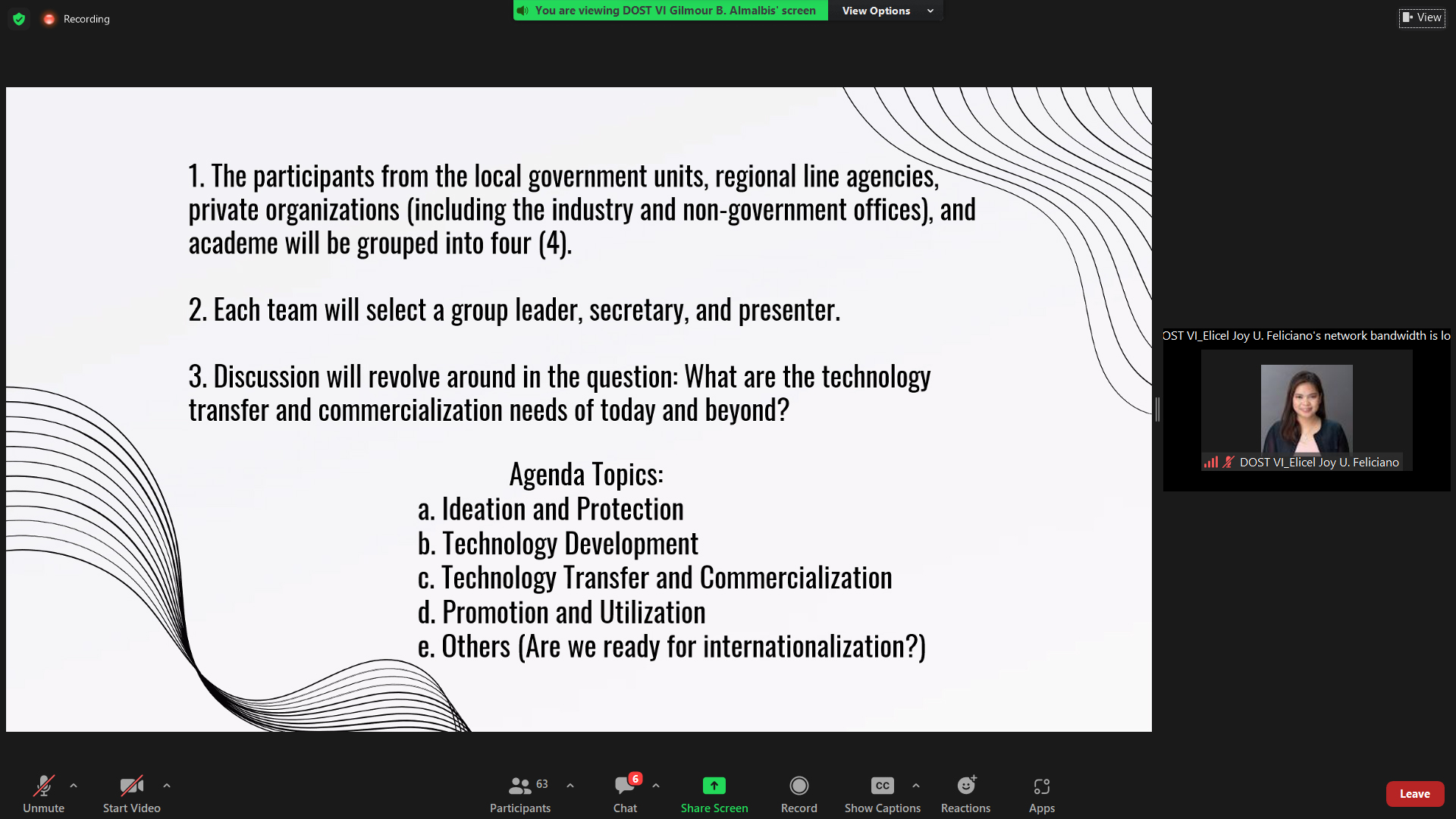
Ideation and Protection:
Participants from the academe and line agencies proposed various programs to tackle concerns related to the mismatch of developed tech to industry needs, limited expertise in IP protection, and limited funding for R&D. Suggestions included reverse pitching, institutionalizing an industry council, conducting stakeholder forums and training on IP and patent searching, promoting research collaboration, and facilitating capability building for research commercialization. They also expressed the need for online system support, grant support, and clearer guidelines on IP ownership and royalty sharing.
Technology Development:
Technology generators and the academe raised concerns about the scaling up and manufacturing process, IP management, time and priority management, funding and regulatory compliance. They suggested programs such as providing assistance in prototyping, offering funding for emerging technologies, upgrading facilities for production and tech dev, providing personnel for tech development, and free or affordable tech development and commercialization trainings. They also emphasized the importance of collaboration among LGUs, industries, private entities, and RDIs.
Local Government Units (LGUs):
LGUs called for stronger collaboration with SUCs and RDIs and recommended programs for R&D and tech transfer.
Private Sector (Industry/MSMEs):
The private sector highlighted the need for financial assistance for purchasing needed facilities or instruments for product development, and for upgrading machine/technology. They also pointed out the need for more programs/activities for R&D and tech transfer.
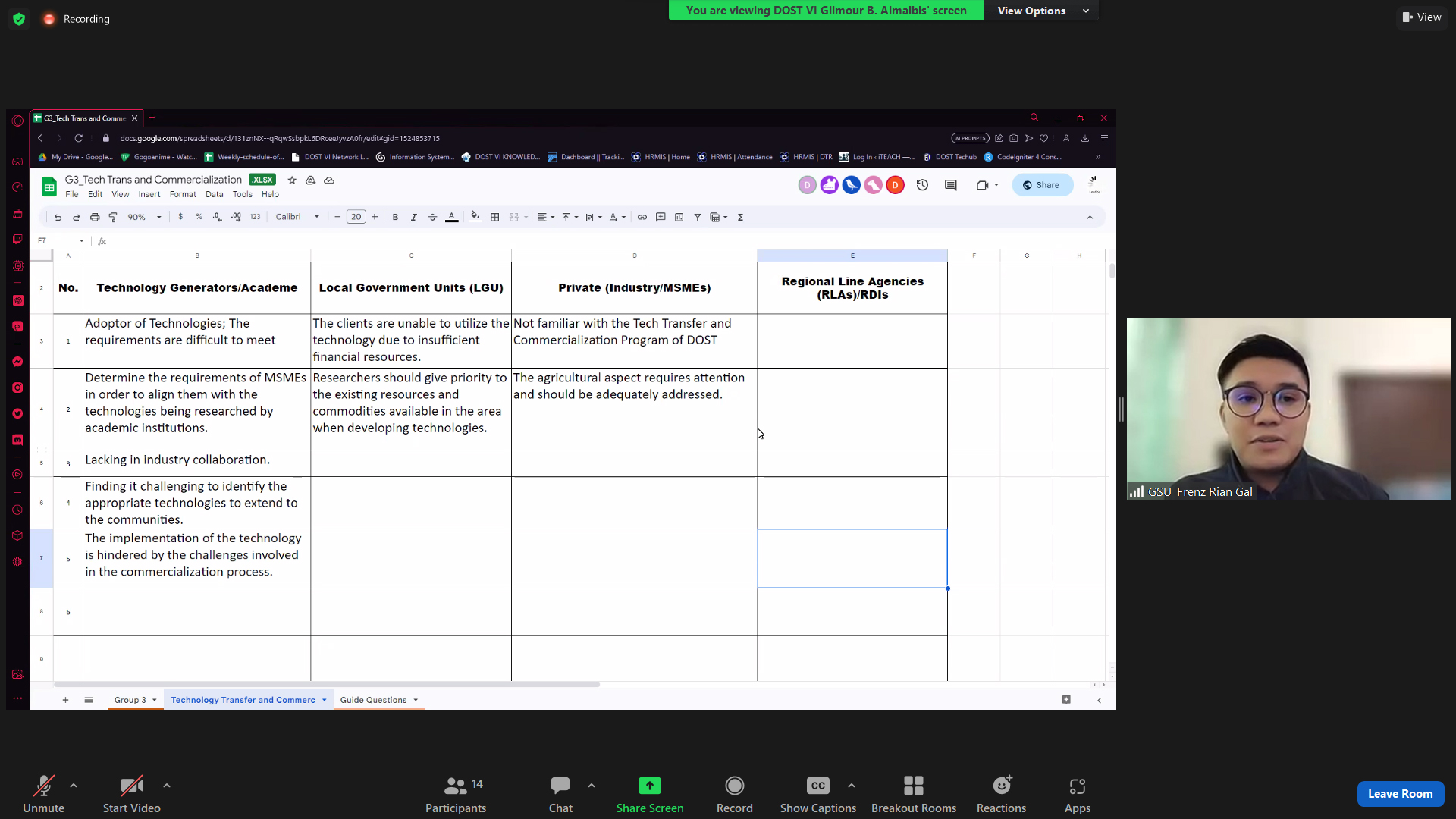
Technology Transfer and Commercialization:
The academe discussed challenges in tech adoption, aligning research with MSME requirements, industry collaboration, identifying appropriate technologies for communities, and dealing with the complexities of the commercialization process. They identified weaknesses in the business and marketing aspects.
Promotion and Utilization:
Both LGUs and the academe expressed concerns about limited knowledge on IP and technology adoption. The LGUs mentioned difficulty in gathering data on IP and innovation, the lack of offices handling IP or technology adoption, challenges in logistics, and issues with internet connectivity. The academe suggested having policies governing generated technologies, capacity development for introducing marketing/business side, matching of new technologies to community needs, and pilot technologies to business partners. The private sector raised issues on the registration of spin-off companies.
2nd Stakeholders' Forum on Technology Transfer and Commercialization
The Stakeholder's Forum aims to consolidate ideas and insights to set the Philippine agenda on technology transfer and commercialization. The forum focused on four specific objectives including defining the country’s current status on tech transfer and commercialization, identifying priority areas, proposing programs and projects that align with these priorities, and locating potential partners for sustained collaboration.
The stakeholders' collective vision, perspectives, and innovative ideas brought to light during this forum will serve as an invaluable resource for DOST-TAPI. The insights provided are expected to pave the way for significant advancements in the technology transfer and commercialization landscape of the Philippines.


